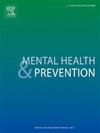比较CBSM、ERT和EMDR对COVID-19女性心理障碍和恢复力的影响:一项临床试验
IF 2.4
Q2 Medicine
引用次数: 0
摘要
目的比较情绪调节训练(ERT)、认知行为应激管理(CBSM)干预和眼动脱敏和再加工(EMDR)治疗对新冠肺炎女性患者焦虑、抑郁、压力和重复性消极思维(RNT)的疗效,寻找最佳干预措施。方法临床试验。研究对象为2021年在伊朗加兹温3家医院转诊的80名新冠肺炎(PCR阳性)门诊女性患者。将患者随机分为四组:ERT组(n = 20,接受ERT组10次治疗)、CBSM组(n = 20,接受CBSM组10次治疗)、EMDR组(n = 20,接受EMDR组8次治疗)和对照组(n = 20)。干预前、干预后、干预后1个月分别完成抑郁、焦虑、压力量表(DASS-21)、重复性思维问卷(RTQ-10)和康诺-戴维森弹性量表(CD-RISC)。结果治疗后,各组患者的DASS-21和RTQ-10平均评分下降,CD-RISC评分上升,其中3个干预组效果显著,干预效果维持1个月。随着时间的推移,干预组与对照组相比,所有研究变量的差异都很显著(P <;0.05),但各干预组间差异无统计学意义。结论三种治疗方法均能有效减少新冠肺炎女性的心理障碍和消极思想,提高抗疫能力。两者疗效无显著差异。这些干预措施建议这些妇女在医疗中心,在重大灾难性的健康事件在未来。本文章由计算机程序翻译,如有差异,请以英文原文为准。
Comparing the effects of CBSM, ERT, and EMDR on psychological disorders and resilience of women with COVID-19: A clinical trial
Objective
This novel study aims to compare the efficacy of emotion regulation training (ERT), cognitive-behavioral stress management (CBSM) intervention, and eye movement desensitization and reprocessing (EMDR) therapy to find the best intervention for reducing anxiety, depression, stress, and repetitive negative thinking (RNT) and improving resilience in women with COVID-19.
Methods
This is a clinical trial. Participants were 80 female outpatients with COVID-19 (positive PCR) referred to three hospitals in Qazvin, Iran in 2021. They were randomly divided into four groups of ERT (n = 20, received group ERT at 10 sessions), CBSM (n = 20, received group CBSM at 10 sessions), EMDR (n = 20, received group EMDR therapy at 8 sessions), and control (n = 20). The instruments were the depression, anxiety, stress scale (DASS-21), the 10-item repetitive thinking questionnaire (RTQ-10), and the Connor-Davidson Resilience Scale (CD-RISC) completed before, immediately after, and one month after the interventions.
Results
After treatment, the mean DASS-21 and RTQ-10 scores decreased and the CD-RISC score increased in all groups, mostly in three intervention groups, where the effects of interventions were maintained for one month. The differences in all study variables were significant over time in the intervention groups compared to the control group (P < 0.05), but there were no significant differences among the intervention groups.
Conclusion
All three therapies are effective in reducing psychological disorders and negative thoughts and improving resilience of women with COVID-19. There is no significant difference between their efficacies. These interventions are recommended for these women in medical centers during major catastrophic health-related events in the future.
求助全文
通过发布文献求助,成功后即可免费获取论文全文。
去求助
来源期刊

Mental Health and Prevention
Medicine-Psychiatry and Mental Health
CiteScore
2.10
自引率
0.00%
发文量
22
审稿时长
24 days
 求助内容:
求助内容: 应助结果提醒方式:
应助结果提醒方式:


